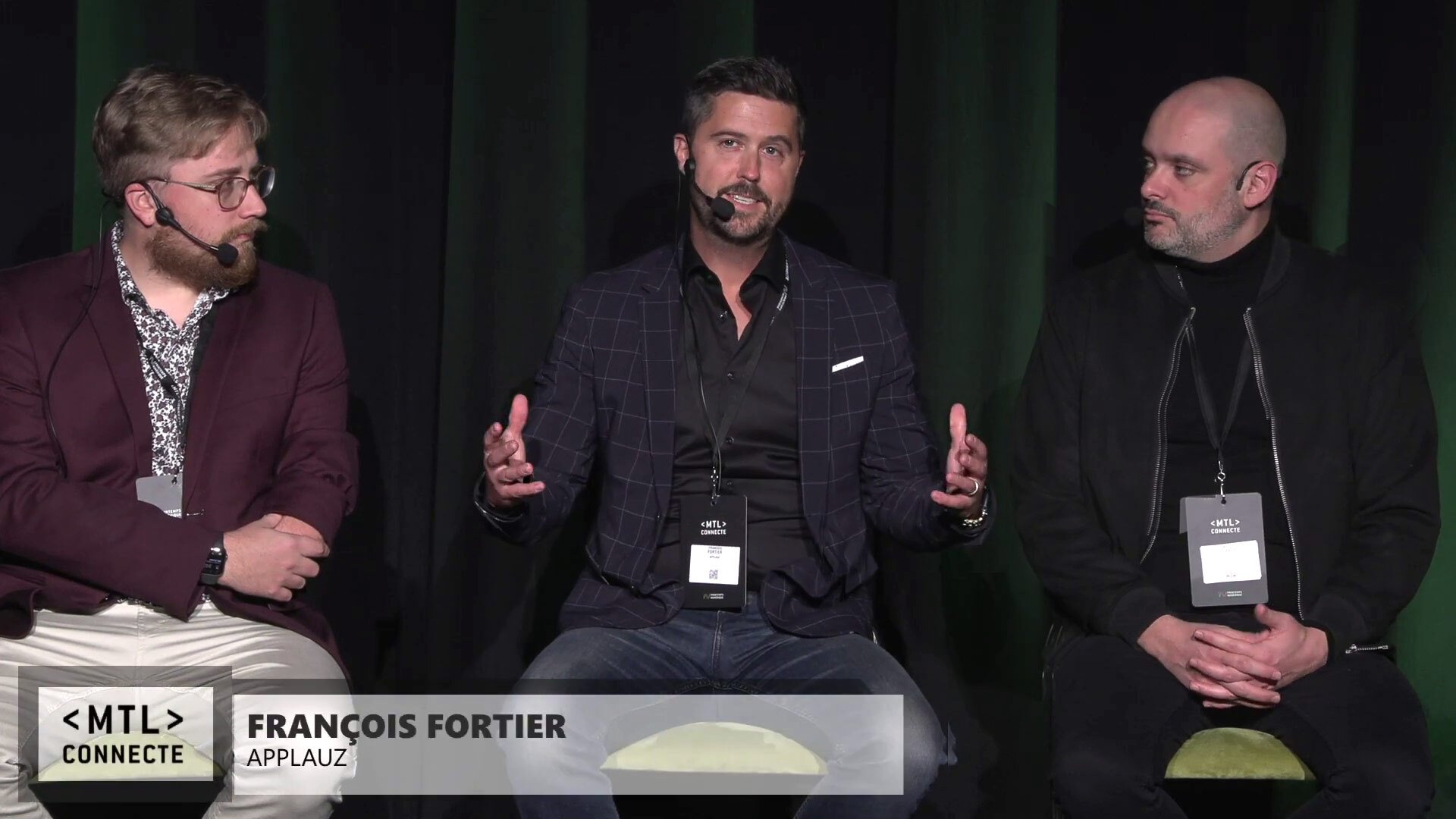The pandemic has disrupted our old ways of doing things, and as a result, the way we work has drastically changed over the course of the last two years. But will this trend continue? Or are companies (and their people) finally settling into a new way of working?
An expert panel of four business leaders from Quebec's tech community discussed these topics at the MTL Connect conference in late 2022. Sophie Ginou, a journalist from Génie-inc et Espresso-jobs, led the talk. Together, they explored the panelists' visions for the future of work and the opportunities and challenges that lay ahead.
Francois Fortier Applauz's CEO was among the panel of experts.
We'll examine his perspective and top priorities for the future of work. Among them are culture as a competitive advantage, flexibility in the workplace, and human-centric leadership.

Culture is the number one opportunity
In this hour-long panel, François starts by affirming how the pandemic accelerated many significant workplace trends. Yet, he explains that the number one competitive advantage in this new era of work is still company culture.
"A company's greatest differentiator is its people"
A company's culture, he continues, has become a critical part of business success. But the pandemic took our learning further; it served to redefine what company culture truly means. Traditionally, it was believed that "culture" was embodied by a physical place. But even while employees worked remotely, people felt their "culture" was alive. In the end, the pandemic reminded us that culture isn't a place; it's actually a set of deeply held beliefs, practices, and values. Simply put, culture is really about people.
As technology continues to play an increasing role in developing and maintaining a company's culture, Francois emphasizes that investing in the right technology to empower your culture is a key opportunity for the future of work. To highlight his point he explains, for example, that at the start of the pandemic, many organizations made sweeping and impactful changes to how they run their operations without much employee data to go on. This can lead to unnecessary disruptions to important business processes, to say the least. But in 2022, with so many great HR tools at their disposal, Leaders can choose to be more deliberate and strategic in how they approach their people operations.
Flexibility and autonomy
"Flexibility and autonomy" are the buzzwords of 2022. Many workplaces have shed their rigid, hierarchical ways in the past two years. Employees were given more freedom than ever before. Yet, more flexibility and work autonomy are amongst the greatest challenges organizations are faced with when looking at the future of work, Francois explains.
"The data clearly shows that employees want more flexibility and autonomy," while adding, "no one has found the perfect recipe yet."
Leaders still need to figure out the optimal formula for how much autonomy and flexibility to give their employees. But Francois thinks these things will eventually work themselves out. Because ultimately, employees do want a deeper sense of belonging. So different working structures are likely to become popular again, like hybrid and coworking arrangements.
Technology, like Zoom and even Virtual Reality, may help us all feel a greater sense of connectedness, but it won't completely replace the need to engage with colleagues in person in the "real" world.
Human-centric leadership
Finally, Francois highlights the crucial role that management plays in supporting employee happiness. He believes companies will need to reconsider how a modern manager engages and supports their direct reports. In the coming years, Francois predicts management will become more "human-centered." This is what employees expect, and companies who recognize this as an opportunity to grow and adapt will see the greatest impact from their efforts, he concludes.
"One of the key factors in human-centric leadership is a deep commitment to listening to employees"
"For too long, companies have managed their employee in an almost paternalistic way," he claims. Companies tend to ignore the opinions and voices of their employees. But now, times are changing. Proactive and continual employee listening is becoming a necessary business practice. This is especially true in remote work settings where it can be challenging to read how people are truly feeling.
Francois underscores the importance of technology and anonymous survey tools, such as Pulse Surveys, to give every employee a voice. "It's important to ask your employees the right questions, to give them a medium to share their opinion, whether it's anonymous or not. And above all, to capture this information and to act upon it."
The Future is Now
As the discussion ended, there was a clear sense of optimism in the air. The moderator asked participants for concrete actions leaders can take today to build a more modern and “future-proof” workforce.
The advice is unanimous among the panel: start investing in your employees today.
“Engaged employees are more successful employees,” Francois highlights. "In this economy, businesses need to make an effort. They need to give their best-performing employees reasons to stay and continue to be productive."
Each business will have its own way of investing in its employees. For some, it means finding tools to help gather important employee data and opinions. For others, it may mean investing in reshaping their office space to be more welcoming and inclusive. There's really no one-size-fits-all solution here.
Francois concludes that tools that help with employee engagement and HR operations are more available and affordable now than ever before. Investing in those programs and solutions today will certainly pay off in the long run.
About the author
 Michelle Cadieux
Michelle Cadieux
Michelle is a content writer for Applauz. She holds a Bachelor's degree in Psychology from Concordia University, and she has been writing about work and employee happiness for over five years.


